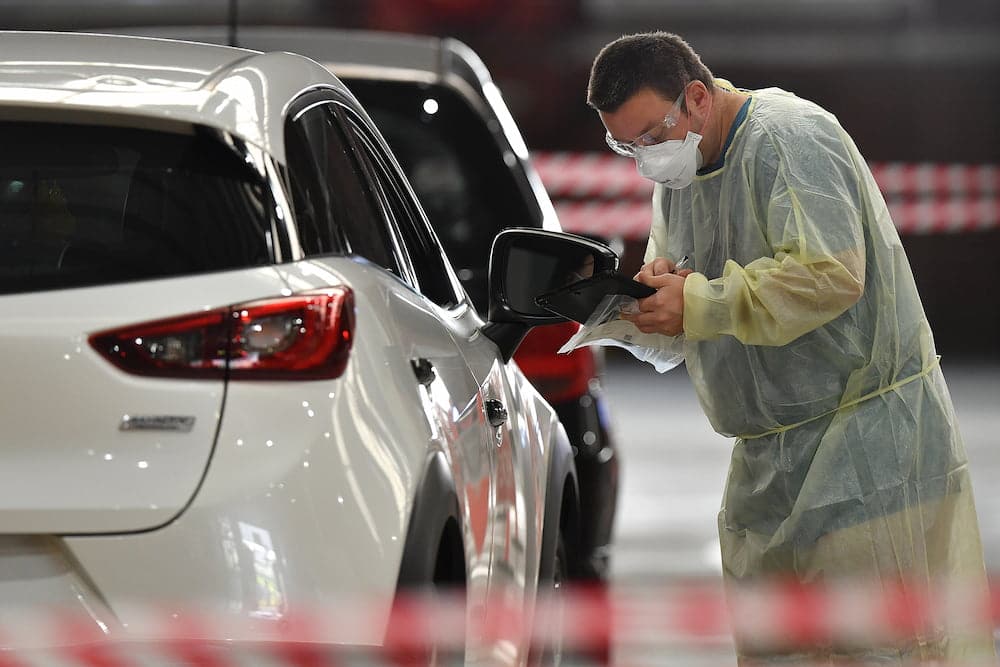Business groups are calling for the easing of the seven-day isolation requirement for household contacts of people with COVID-19.
Business NSW and the Victorian Chamber of Commerce and Industry say the rules should be relaxed to ease staffing shortages, wanting those deemed close contacts to be allowed to work and undergo daily rapid antigen tests instead.
Business NSW chief executive Daniel Hunter said with such high vaccination rates, Australians have demonstrated a capacity to live and work with the virus.
“The current isolation rules are providing a barrier to businesses as healthy people are forced to isolate unnecessarily,” he said in a statement on Tuesday.
With NSW and Victorian airport workers now exempt from household contact rules, there was an “inconsistency and unfairness”.
“This needs to be fixed so that all businesses can have fair access to workers,” he said.
“Business needs certainty and we know that they are already struggling with supply chain issues and staff shortages.”
Victorian Chamber chief executive Paul Guerra said staff shortages continued to hamper business.
“We need to release the handbrake and enable businesses to operate at the maximum capacity possible and lead our economic recovery,” he said.
Labor frontbencher Bill Shorten agrees, saying a week of isolation is too long.
“Get vaccinated. If you’re sick, stay at home but other than that, seven days isolation is unwieldy,” he told the Nine Network.
“A lot of the rest of the world has got rid of it. I think it is time for us, too.”
Multiple Victorian worker groups are already exempt from isolating as household close contacts, including education, emergency services, healthcare and transport staff.
Victorian Premier Daniel Andrews last week flagged the state’s isolation rules and vaccination requirements would be scrapped after the peak of the Omicron wave.
LATEST 24-HOUR COVID-19 DATA FROM ACROSS AUSTRALIA:
ACT: 816 cases, no deaths, 64 in hospital, two in ICU
NSW: 10,856 cases, eight deaths, 1623 in hospital, 70 in ICU
Victoria: 8976 cases, seven deaths, 443 in hospital, 31 in ICU
Queensland: 6467 cases, no deaths, 564 in hospital, 20 in ICU
Tasmania: 1418 cases, no deaths, 47 in hospital, one in ICU
Western Australia: 5605 cases, no deaths, 227 in hospital, six in ICU
Northern Territory: 475 cases, 43 in hospital, three in ICU
South Australia: 3829 cases, three deaths, 245 in hospital, 11 in ICU



